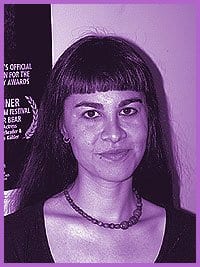Something hap- pened a few days ago. It was early evening and I was wending my way along Rideau St with my wrist linked in the crook of my girlfriend’s arm. I had just gotten off work, and was talking contentedly about my day’s labours.
We were on our way to a restaurant in the Byward Market for dinner. A young man in his early 20s, in the company of two other young men, was walking toward us. He looked at me, then my girlfriend and after taking in the fact that our arms were linked, the expression on his face was immediately transformed into one of fury. As we passed, the young man leaned into my girlfriend’s ear. He hurled at her what sounded like an enraged primordial scream. The violence implied in his non-verbal communiqué was unmistakable.
My emotive reaction was swift: indignation, shock and incredulity, followed immediately by fear. My physical reaction was swift also: my calm demeanour was suddenly transformed into a pounding heartbeat. I swung around to see what the three men were doing.
Thankfully, the un-gentlemen went along their way, engaging in animated discussions with broad gestures. I experienced myriad thoughts as I looked at the swaggering figure of the homophobic young man who had so thoughtlessly scorned and defiled us in public. How could it be that we were verbally assaulted in broad daylight? How could a total stranger express such loathing towards us? I could not stop thinking about the hate that had flashed on his face when he saw us.
On a hectic Saturday afternoon in 1963, my mother and father – who had met not long before and recognized the ineluctable fact that they would marry, have children and grow old together – were on an ascending escalator in downtown Montreal’s Eaton’s. A man on the descending escalator looked first at my mother and then at my father. Then he leaned over the escalator railing and venomously shouted “Chink!” in my father’s face. With that, stares came from other white-skinned escalator passengers as well as those shopping on the sales floor. They were not staring at that man, but at my father and then at my mother.
Around the same time, two other events occurred. Two of my mother’s aunts invited her to tea. Once there, they informed her that she was to end her relationship with my father that very day. They solidified their argument by stating that if my mother were ever to have children by my father, it would be a disgrace to her family to count Mongoloids among their kin. My mother terminated her relationship with them upon parting company. The second event is that my father donated blood to the Canadian Red Cross for the first and last time in his life. After having contributed his pint of blood, the nurse removed the needle, applied a bandage to his inner elbow, and without a hint of discretion, wrote “Chinese” on the bottle of blood.
I compare these two events to two in my own experience. The first is being told by a close family friend that I should not be legally permitted to have children because I am a lesbian. The second is that my ex-partner was once told by a female doctor at a drop-in health clinic that she did not need to get a pap smear more than every five years because lesbians are not at risk for cervical cancer.
In 1947, my father received a letter from the Canadian government congratulating him on his newly acquired Canadian citizenship. At that moment, he realized that despite having been born here and never having even visited any other country, he was not counted among Canada’s citizens. Until he received that letter, he had not been the citizen of any country. I compare this to the fact that I am prohibited from marrying, and that the government taxes me at the same rate as heterosexual citizens, yet I enjoy fewer rights.
Those stories were told to me by my parents who were firm in their belief that they paved the way, so that I would be prevented from experiencing prejudice. Upon coming out to my parents, their reaction was one of grave concern that my success in life would be impeded by people’s prejudice, or worse, that violence would be enacted against me. I think their fear was based partially on the fact that I would have to fight the hard battles that they had already won years earlier.
They were right. Homophobia is the last socially acceptable prejudice among many segments of Canada and Ottawa’s population. Ergo, my experience on Rideau St. I would wager my entire life savings that what happened to me will be repeated several more times in my life.
No doubt I am reliving the process my father underwent. Although the context is different, the battle for equality and the right not to be defamed is the same. And as my father and other non-white Canadians triumphed over societal and government-sanctioned prejudice, I and other lesbian, gay, bisexual and transgender Canadians will triumph over it also.

 Why you can trust Xtra
Why you can trust Xtra


